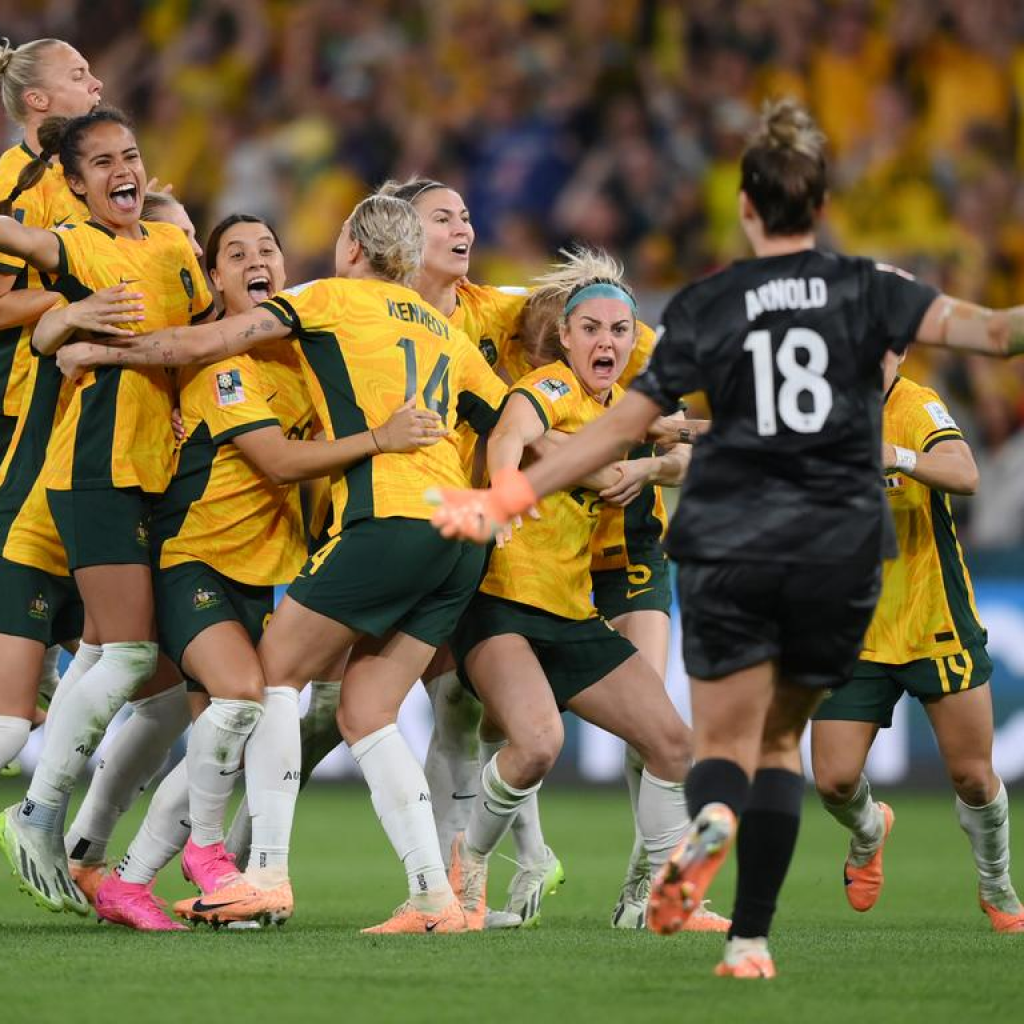
Matildas vs. Sweden: Alanna Kennedy ruled out due to concussion
Due to persistent concussion symptoms, Alanna Kennedy will not be able to play in the Matildas' third-place match against Sweden.
Alanna Kennedy, the top defender for the Matildas, made a spectacular defensive play—a flying header in the goal box—but it ultimately cost her team the game.
In the quarterfinals, Kennedy collided with Eugenie Le Sommer of France as they both leaped to remove the ball from the box, and both women went down.
Medical personnel evaluated them both on the pitch and on the sidelines and deemed them fit to play for the final 15 minutes of overtime.
Kennedy, who had started all five of the Matildas' previous matches, was ruled out of the semi-final match against England just hours before the game was set to begin.
After first telling the public that the defender was sick, Football Australia revealed on Friday that the woman was actually experiencing delayed concussion symptoms.
The Matildas' recent losing streak, during which they were without several players due to concussions, does not bode well.
Mary Fowler and Aivi Luik will miss the first game against Nigeria due to the concussions they suffered during practice.
As he did against England on Wednesday night, Matildas coach Tony Gustavsson is set to bench Kennedy in favor of Clare Polkinghorne.
It was clear from the opening kickoff that the hiccup against Nigeria had disrupted what had otherwise been a great defensive effort, and that this had played a role in the eventual loss in the semi-finals.
According to Gustavsson, Kennedy's domestic season was marred by injuries, making it difficult for her to qualify for the World Cup.
To illustrate how hard these athletes train for competition, Gustavsson cited Alanna as an example.
Whether or not they would make the World Cup lineup was a major unknown.
"This may have been Alanna's greatest international competition ever.
She has done a fantastic job. Playing the double nine, guarding the box, or assaulting the box...
It was tough not having her there, and especially to get that notice around lunch on the day of the game.
Clare Polkinghorne "has the experience and mental strength she has to step in, after not starting a game for club or country since April," and "to be so composed in a semi-final at a World Cup."
Robbie Slater, a former member of the Socceroos, cited Kennedy's absence as a contributing factor to Australia's loss to England in the semifinals in an exclusive column for CODE Sports.
We all felt the loss of Alanna Kennedy. Slater praised her as "one of Australia's most outstanding players" and said, "She's having a tournament to remember." I mean no offense to anyone who played, but I really think the last-minute substitution drained the team. Her time in the sin bin has been crucial to our success in this competition, as evidenced by our four clean sheets.
While Clare Polkinghorne is a Matilda icon, her introduction disrupted our defensive rhythm because she had not played much previously.
We gave up three goals that we might have easily prevented in earlier games because "communication and urgency were not as good as they had been."
FIFA debuted their concussion spotters at this year's Women's World Cup for the first time.
Current football concussion guidelines permit on-field or sideline evaluation of a player suspected of having a concussion. A free replacement can be made if they are ruled to have a concussion.
Players are not removed from the field for 15 minutes of evaluation before being allowed to return if cleared, as is the case in the National Rugby League and the Australian Football League.
On the eve of the World Cup, former Matilda, and Professional Footballers Australia co-chair Kate Gill told CODE Sports that the present system was flawed.
Gill claimed that they had been lobbying for a temporary substitution regulation to allow for an off-field evaluation of players before any decisions were taken.